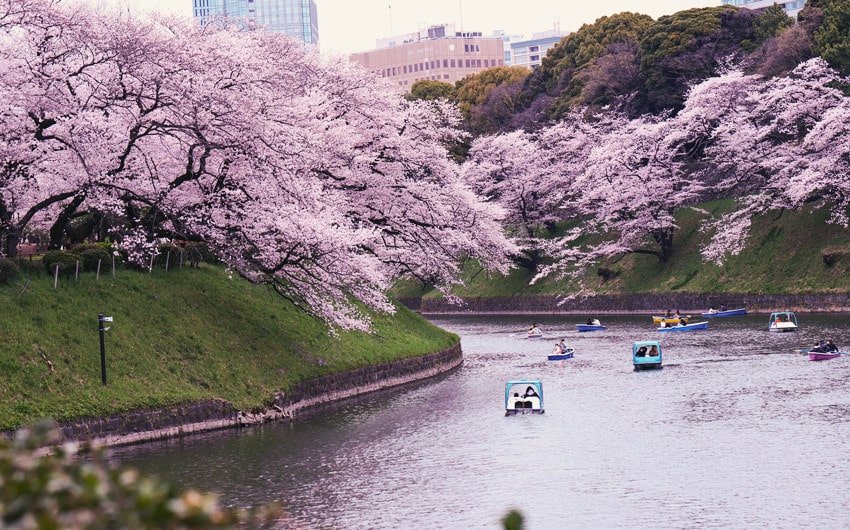In Japanese culture, names hold profound significance, often reflecting aspirations, cultural heritage, and even the beauty of nature. Among these, names associated with colors carry a unique charm, symbolizing various qualities and emotions. The color pink, with its associations of delicacy, beauty, and innocence, has inspired many beautiful names in Japanese tradition.
Japanese Culture and Naming Traditions
Japanese Names are carefully chosen to convey meanings, aspirations, or to honor ancestors. Each syllable in a name carries its own significance, creating a rich tapestry of meanings.
The Color Pink in Japanese Culture
In Japan, the color pink holds special significance, particularly in relation to cherry blossoms (sakura). These delicate flowers, with their ephemeral beauty, are revered symbols of renewal and the fleeting nature of life. Pink is also associated with concepts of femininity, love, and youthfulness.
Popular Japanese Names Meaning Pink
Japanese names inspired by flowers often carry meanings associated with their colors. For instance, names like Sakura (cherry blossom) and Momoka (peach blossom) are popular choices for girls, evoking the image of delicate pink petals.
Historical and Cultural Context of Pink Names
Throughout Japanese history, figures like Sakura Shinguji, a character in the Sakura Wars franchise, have popularized names associated with the color pink. Art, literature, and media often incorporate pink symbolism, further cementing its cultural significance.
Gender Specific Pink Names
While many pink names are associated with females, there are also gender-neutral or even male names with pink-related meanings. Names like Haruto (spring) can be suitable for boys while still embodying the essence of pink through their seasonal associations.
Unique and Uncommon Pink Names
For those seeking more unique options, there are lesser-known names with beautiful pink meanings. Names like Azami (thistle) or Ayame (iris) carry a sense of elegance and rarity, making them distinctive choices.
Modern Interpretations of Pink Names
In contemporary Japan, parents often blend traditional and modern elements when naming their children. Pink-inspired names continue to be popular, reflecting a desire to embrace cultural heritage while also expressing individuality.
Practical Considerations in Choosing Pink Names
When choosing a pink name, practical considerations such as length and pronunciation are important. Parents should also consider how the name pairs with the child’s surname and any middle names chosen.
Celebrity Influence on Pink Names
Celebrities play a significant role in shaping naming trends, and many have chosen pink-related names for their children. From actresses to musicians, these names often become synonymous with style and sophistication.
Cultural Appropriation and Sensitivity
While pink names are beautiful, it’s essential to approach cultural naming with sensitivity and respect. Understanding the cultural significance behind a name can help avoid appropriation and foster appreciation for diverse traditions.
Tips for Incorporating Pink Names
For those considering pink names, incorporating them into everyday life can be a delightful experience. From nursery décor to personalized items, there are countless ways to celebrate a name’s significance.
Parental Reflections on Choosing Pink Names
Parents who choose pink names often have personal stories or reflections on the process. Whether inspired by cultural heritage or personal preferences, these names become a meaningful part of a child’s identity.
Impact of Pink Names on Identity
Names play a significant role in shaping identity and perception. Embracing a name’s unique meaning can empower individuals to embrace their heritage and individuality with pride.
Parental Reflections on Choosing Pink Names
Parents who choose pink names often have personal stories or reflections on the process. Whether inspired by cultural heritage or personal preferences, these names become a meaningful part of a child’s identity. Some parents may recount the joy of discovering a name that perfectly encapsulates their hopes and dreams for their child. Others may share the sentimental significance of choosing a name that honors a beloved family member or cultural tradition. Regardless of the motivation behind the choice, the process of selecting a pink name is often filled with love, anticipation, and careful consideration.
Impact of Pink Names on Identity
Names play a significant role in shaping identity and perception. Embracing a name’s unique meaning can empower individuals to embrace their heritage and individuality with pride. For those with pink-inspired names, there can be a sense of connection to the color’s symbolism of beauty, grace, and resilience. This connection may inspire confidence and a sense of belonging, as individuals carry their names with them throughout their lives. Whether it’s the subtle influence of a name’s meaning or the cultural significance behind it, pink names can leave a lasting impact on one’s sense of self and identity.
Conclusion
In Japanese culture, names are more than just labels – they are reflections of heritage, aspirations, and the beauty of nature. Names meaning pink encapsulate the delicate charm and timeless elegance associated with this color, offering a profound connection to tradition and culture. By embracing pink names, parents can celebrate diversity and create meaningful legacies for future generations
